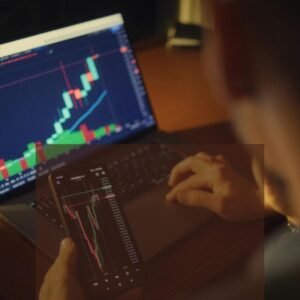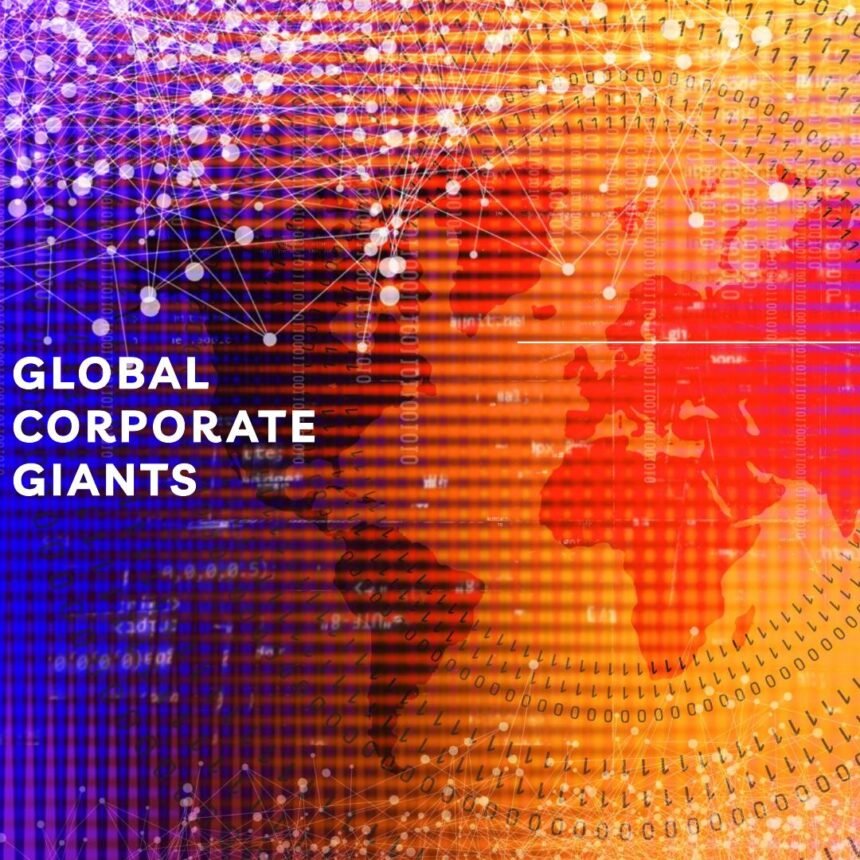Global Corporate Impact
In today’s interconnected world, where information can easily cross borders, dominant companies hold significant power and influence. These corporate giants can shape markets, drive innovation, and redefine entire industries. Understanding how these dominant players impact the global economy is crucial.:
Tech Invasion
In the past, successful companies were primarily focused on industrial manufacturing and produced tangible goods such as cars and light bulbs. Examples of such companies are Henry Ford and Thomas Edison. However, the current business landscape is vastly different from the past. We live in a digital age where data bytes are more valuable than physical atoms.
Large tech companies like Apple, Amazon, and Google have revolutionised traditional business models by innovating in the virtual world and redefining how we communicate, shop, and work.
Eastern Promises
The increasing dominance of Asian corporations, such as Reliance, Adani, and Tata of India, is a significant trend that cannot be overlooked. Their global influence extends to various sectors, including supply chains, e-commerce, and technology.
As these corporations continue to assert their economic might, businesses in the West must adapt to these changes or risk becoming irrelevant in the face of this emerging economic power.
Also Read: The “Rich Get Richer” Phenomenon
Evolution of Money
The concept of money, considered one of humanity’s most influential inventions, is transforming. Cryptocurrencies, digital wallets, and decentralised finance (DeFi) are revolutionising financial systems. Payment systems like UPI and NACH provide access to financial services, challenging traditional banks. These systems play a crucial role as the world moves towards cashless transactions.
The Green Revolution
The environmental movement has come a long way from being a niche area of interest to a mainstream concern that is taken seriously by individuals, businesses, and governments alike.
As a result, there is now a growing need for companies to embrace sustainable practices and reduce their carbon footprint. Tesla’s electric cars have played a crucial role in helping companies achieve this goal by demonstrating that they can be just as efficient and convenient as their gasoline-powered counterparts.
Moreover, investors are now paying more attention to environmental, social, and governance (ESG) factors when making investment decisions. They realise that sustainable business practices can lead to better financial performance in the long run and are more likely to invest in companies that prioritise ESG considerations.
This has created a positive feedback loop where companies that adopt sustainable practices are rewarded with increased investment and support, motivating them to do even more to reduce their environmental impact.
Accelerating Technological Progress
The widespread use of artificial intelligence (AI), automation, and quantum computing has recently been a game-changer for many industries. Companies like Tesla are leading the way in this technological revolution with their electric vehicles and self-driving technology. The key to success in this era of digitisation lies in using these technologies to solve practical problems. The companies that can leverage these cutting-edge tools effectively will emerge as winners in the marketplace.

The Trade Paradox
In today’s world, globalisation is encountering significant challenges impacting the free flow of goods and services across borders. These challenges include trade tensions, policies, and geopolitical rivalries, making it increasingly difficult for companies to balance their global presence and uphold national interests.
As a result, businesses are grappling with complex decisions to navigate these challenges while remaining competitive and maintaining their market share. They must consider the trade-offs between expanding their global reach and complying with local regulations and restrictions.
Furthermore, they must also consider the potential risks and uncertainties associated with political instability, economic volatility, and social unrest in different regions. In this complex environment, companies must adopt a strategic and proactive approach to globalisation, considering the evolving geopolitical landscape and the changing nature of international trade.
Shifting Human Geography
In recent years, remote work and digital nomadism have taken off, leading to a significant shift in how people approach their work and residency locations.
This shift has created opportunities for organisations to attract highly skilled workers by offering flexible work arrangements tailored to their needs. Workers are no longer confined to the traditional office setting, as remote work allows them to work from anywhere in the world. This has also led to a shift in the innovation landscape, with rural areas and small towns now contributing to developing new ideas and driving progress across various industries.
As a result, organisations that adopt flexible work arrangements can attract top talent and tap into a broader pool of ideas and innovation from a more comprehensive range of locations.
Wealth Landscape
Despite efforts to address it, income inequality remains a persistent problem in today’s economy. Large corporations such as Amazon and Walmart significantly impact market dynamics and workers’ lives. This complex landscape includes the rise of the gig economy, ongoing debates around minimum wage policies, and the growing importance of corporate social responsibility. These issues are of great significance to economists and other experts studying the intersection of business, labour, and public policy.
Conclusion
In today’s global economy, dominant companies hold significant power and influence. Their decisions have far-reaching effects that span continents and impact the lives of billions of individuals. As we navigate this era of rapid transformation, businesses, individuals, and policymakers need to comprehend and evaluate these companies’ impact. Understanding the intricacies of their operations and decision-making processes is crucial for anyone seeking to stay ahead of the curve in this rapidly evolving landscape.



